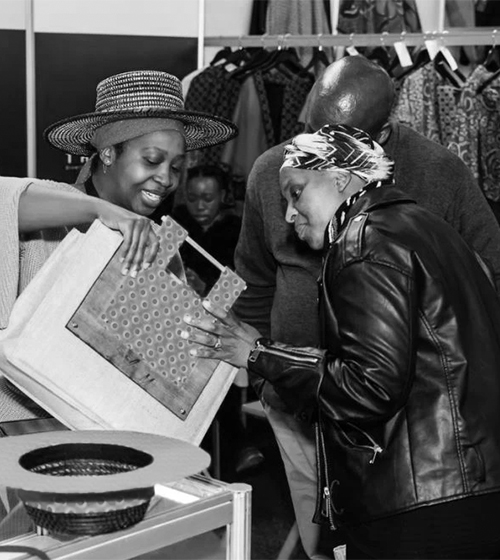We are honored to have been chosen by (Wholesale and Retail) W&R Seta for this important project and look forward to working with our partners to make a positive impact in the community.
The wholesale and retail sector plays a critical role in the informal economy. Informal businesses in this sector often operate in small shops or stalls, selling a variety of goods ranging from food to clothing to household items. These businesses typically have low barriers to entry, and many are run by individuals or families who have limited access to formal education or training.
Despite the challenges they face, informal businesses in the wholesale and retail sector are an important source of income and employment for many people in the informal economy. They provide essential goods and services to local communities, and often operate in areas where formal businesses are scarce. However, informal businesses in the wholesale and retail sector also face significant challenges. They may lack access to credit, which can make it difficult to invest in their businesses and expand their operations.
They may also struggle with issues such as theft, poor infrastructure, and limited market access. To address these challenges, it is essential to provide informal businesses in the wholesale and retail sector with training and development opportunities. This can help them to improve their business management skills, develop effective marketing strategies, and access new markets. By supporting the growth and development of these businesses, we can create jobs, stimulate economic growth, and build stronger communities. Overall, the wholesale and retail sector is a critical part of the informal economy, and we must work to support and empower the businesses that operate in this sector. Through training, mentorship, and other support, we can help these businesses to overcome their challenges and achieve their full potential.
This project aims to provide much-needed support to informal businesses by offering training and development opportunities. We recognize that many small businesses face significant challenges in accessing resources and expertise, which can make it difficult to grow and succeed. That’s why we’re committed to providing comprehensive training and development that will equip entrepreneurs with the knowledge and skills they need to succeed. Through this project, we will be offering a range of training opportunities, including business management, financial planning, marketing, and customer service. We will also be providing mentorship and coaching to help entrepreneurs put their new skills into practice and achieve their goals.
We believe that this project has the potential to make a real difference in the lives of informal business owners and the broader community. By supporting the growth and development of these businesses, we can create jobs, stimulate economic growth, and build stronger communities.
This Project is the POC (Proof of Concept) to the formalization of retail and wholesale informal businesses which is a complex that requires a concerted effort by various stakeholders, including government, civil society process organizations, and the private sector. The proof of concept will be an effective way to test the viability and effectiveness of various approaches to formalization. As IEDF we are leading the process in the formalization of retail and wholesale informal businesses piloting a program in Western Cape with 197 informal businesses. The program will involve a range of activities aimed at supporting informal businesses in transitioning to the formal economy, such as providing access to finance, business training, and legal assistance. The success of the proof of concept will be evaluated based on a range of indicators, including the number of businesses that transitioned to the formal economy, the increase in their income and livelihoods, and the extent to which they are able to comply with formal regulations and requirements.
The results of the proof of concept will be used to inform the development of policies and programs aimed at formalizing retail and wholesale informal businesses more broadly. Lessons learned from the proof of concept will be shared with other stakeholders, including government agencies, civil society organizations, and the private sector, to inform their efforts to support the formalization of the informal economy.
We are grateful for the opportunity to work on this project and look forward to making a positive impact in the lives of many individuals and families. We will keep the public informed about our progress and the results of our efforts.
For more information about this project, please contact Bernita Augus National Marketing and Media Manager. [email protected]




